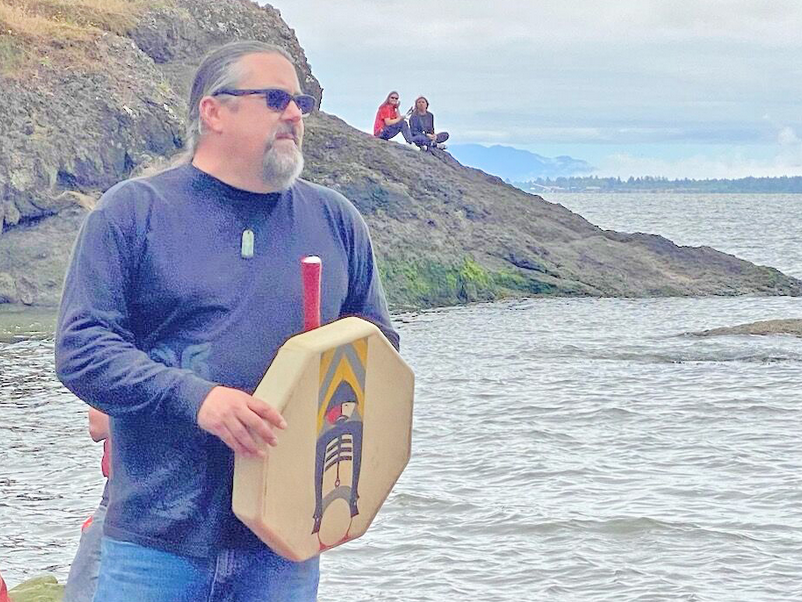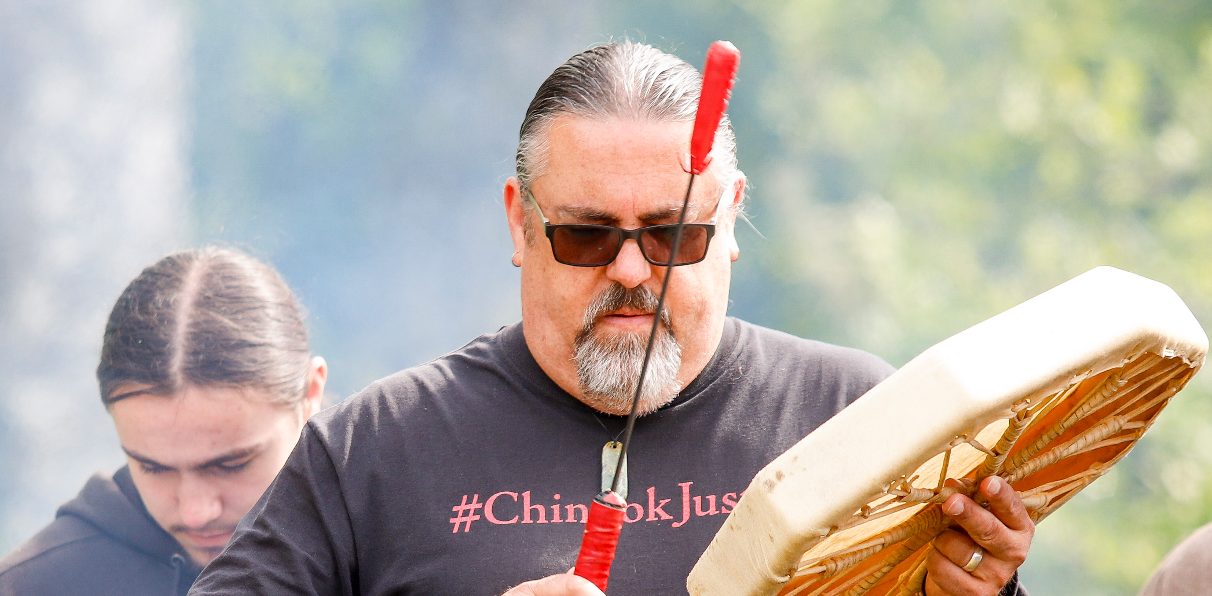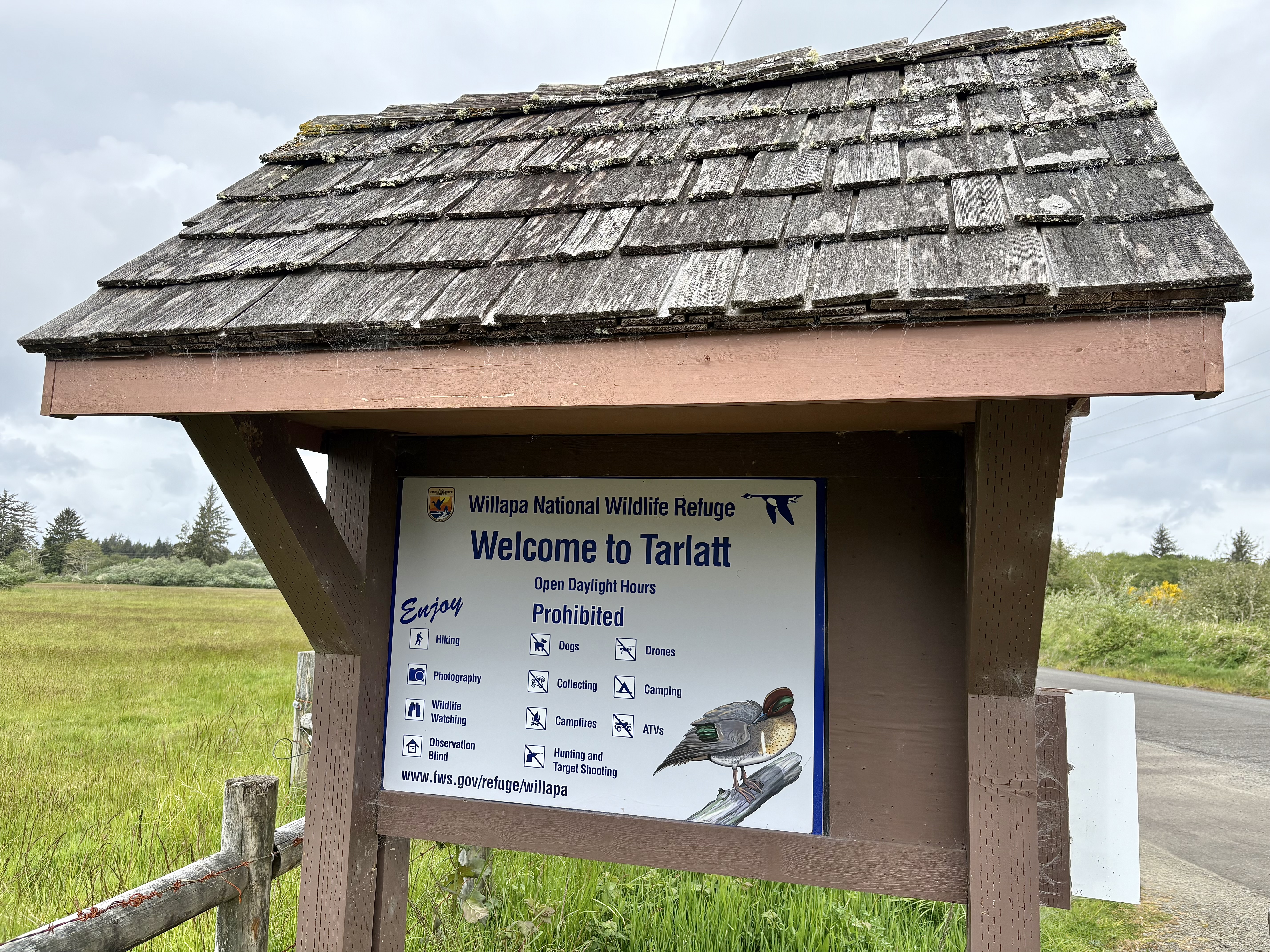Perez, tribe at odds over bill: Resource rights at heart of discord
Published 4:19 pm Monday, April 14, 2025
Alleged broken promises by U.S. Rep. Marie Gluesenkamp Perez have resulted in the Chinook Indian Nation seeking a new legislator to champion their ongoing fight for federal recognition.
Chinook Indian Nation Chair Tony Johnson took the disagreement to the stage at the Raymond Theatre on March 13 after Gluesenkamp Perez ended a scheduled town hall. He and dozens of tribal members demanded that the tribe get back what they say is rightfully theirs — proper recognition, without signing away traditional rights.
Resource rights
Trending
According to the Chinook, Gluesenkamp Perez flipflopped on a previous promise to fight federally on behalf of the tribe with a bill that would restore recognition, which would be “neutral on resource access rights, and ensured that the entire region prospered.”
“The standard language that appears in other recognition bills and what was agreed to with the Chinook read, ‘Nothing in this Act expands, reduces, or affects in any manner any hunting, fishing, trapping, gathering, or water rights of the Tribe and members of the Tribe,’” Chinook Indian Nation Spokeswoman Haley Thue stated.
“So, the version that was agreed to with the Congresswoman was neutral and explicitly did not affect resource rights. Congresswoman Gluesenkamp Perez has since pushed for language that would explicitly take away hunting rights, fishing rights, gathering rights, the rights to aquaculture, and the rights to water.”
“Those are vital rights for the community, and her proposed amendments are not only deeply unusual but are deeply unfair, as evidenced by the fact that she just voted to restore the Siletz [Tribe’s] resource rights,” Thue added.
Gluesenkamp Perez was anticipated to introduce a bill titled the “Chinook Indian Nation Restoration Act” in June 2024 but backed out over a last-minute amendment that would have removed natural resource rights.
“Congresswoman Gluesenkamp Perez gave the Chinook Indian Nation an impossible choice: give up our rights to live as we have done for tens of thousands of years, or maintain our status as an ‘unrecognized’ tribe,” Johnson said. “All of our lands, villages, sacred sites, fishing, and burial grounds were taken away from us by the United States.
Trending
“The Chinook Indian Nation cannot be asked to give up even more. There is no world where we can accept a law being passed by the United States that takes away more from our people. We have accessed and subsisted on our lands’ resources for as long as we have been here and have a sacred connection with our plants, animals and water that we cannot be asked to give up,” Johnson added.
Strategic decision?
Gluesenkamp Perez released a statement on April 9 sympathizing with the lack of recognition of the Chinook, which she states would “begin to right the wrongs the Chinook people have endured for generations, from the original seizure of their ancestral lands to the forced attendance of Chinook children at Indian boarding schools to the subsequent decades of discrimination.”
“Granting federal recognition to the Chinook Indian Nation is an essential step toward addressing these historical injustices,” Gluesenkamp Perez stated. “As a member of the House minority, I have been working with Chairman Johnson and his members in order to introduce the strongest version of this bill that has the greatest chances of passing the House and Senate and being signed into law.
The congresswoman said she’s received questions from residents in Pacific County about how federal recognition for the Chinook could affect them in regards to natural resource rights, “which were limited in a version of the bill introduced before I came to Congress.”
“To that end, we are continuing to build buy-in and consensus from local stakeholders and tribes to be able to get recognition legislation across the finish line — that way, the Chinook Indian Nation can access long-awaited resources and opportunities,” Gluesenkamp Perez added.
According to the congresswoman’s office, the Chinook never signed a federal treaty, and non-treaty tribes can only petition the Washington State Department of Fish and Wildlife for natural resource rights that would be limited to their designated reservation.










